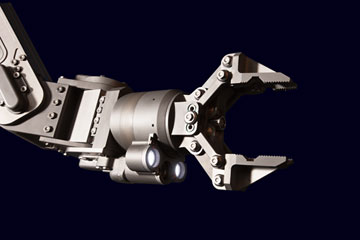
Japanese Engineers pulled off an impressive demonstration earlier this year. They arranged a convoy of four freight-hauling trucks, cruising smoothly at roughly 50 m.p.h., maintaining a steady distance between the vehicles as they roared past commercial buildings and rolling fields. The impressive part was that three of the trucks had no driver. Only the lead vehicle had a human at the wheel; the others were controlled by lasers, software and wireless communications. The automatons were really good too. At one point, the engineers arranged to have a chase car accelerate past two units of the convoy and cut in behind the second truck. The third and fourth vehicles promptly fell back to a safe following distance--then closed the gap after the chase car left the line.
Watching a video of that demonstration, I couldn't help wondering how many people are employed as truck drivers in the U.S. According to the Bureau of Labor Statistics, the number was 1.6 million in 2010 and is projected to grow to nearly 2 million by 2020. These aren't bad jobs, either. Median pay for truckers as of 2010 was about $38,000, with many veteran drivers earning twice that, plus benefits. Were those Japanese trucks a vision of doom bearing down on all those middle-class jobs? In today's world (let alone tomorrow's), the speed and force of technological change seem to summon an uh-oh for every gee whiz.
The automation of human labor is as old as the Industrial Revolution. From the steam engine and the cotton gin to the desktop computer and the robotic welder, machines have enabled leaps of efficiency that create far more jobs than they destroy. And yet many economists and technologists believe that things are different this time, that society is entering a new and troubling phase as computing power and other advances make possible the creation of ever-more-powerful robots. What if the economic growth of the future produces more jobs for more robots, leaving humans behind? What if we're heading toward a future in which a handful of creative humans marshal an army of ever-more-intelligent machines while everyone else languishes? How does the world work without ... work?
We can see jobs vanishing before our eyes. Airport ticket counters used to teem with employees; now only a handful stand by to assist customers who use kiosks. Travel agencies once brightened streets with posters touting sunny destinations; now people book vacations online. For workers from accountants to X-ray technicians, technology has chipped away at a virtual alphabet of occupations. This revolution is likely partly to blame for the slow growth in jobs since the crash of 2008. Consider the manufacturing sector: robust growth in production has produced little or no growth in employment. According to a study published by the Federal Reserve Bank of Chicago, by the end of last year U.S. manufacturing had recovered 75% of the output lost in the Great Recession but only about 21% of the lost jobs.
